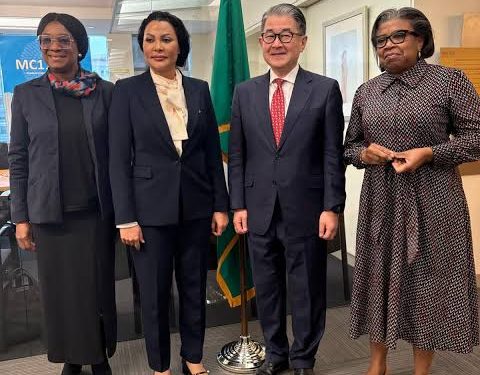Nigeria is strengthening its engagement with international development institutions as part of efforts to boost foreign direct investment and expand the country’s economic project pipeline. This renewed collaboration was highlighted during high-level discussions with the Japan International Cooperation Agency and the Multilateral Investment Guarantee Agency, held on the sidelines of the World Bank Group and IMF Annual Meetings in Washington D.C.
The meeting was led by the Minister of State for Finance, accompanied by senior members of the Nigerian delegation, and focused on fresh areas of cooperation that could bolster investor confidence and widen private sector participation. Central to the talks was the shared objective of supporting Nigeria’s ongoing economic reforms and building a stronger, more predictable environment for global capital inflows.
In an official statement, the Federal Ministry of Finance reaffirmed Nigeria’s commitment to working with global partners to accelerate economic transformation. The government restated that sustained collaboration with institutions such as JICA and MIGA is crucial for job creation, infrastructure expansion and the development of critical sectors ranging from energy to manufacturing.
JICA and MIGA, both longstanding partners on the African continent, signalled their readiness to continue backing Nigeria’s development ambitions. Their involvement is expected to extend beyond financing into technical support, investment risk guarantees and project facilitation—key instruments that encourage foreign investors to engage in complex markets. Such backing is particularly significant for sectors where small and medium-sized enterprises face barriers accessing international investment.
According to the ministry, this phase of partnership aims to unlock new investment channels and reinforce Nigeria’s pursuit of economic diversification. The discussions reflect a broader confidence among development agencies in Nigeria’s reform agenda and stability measures introduced to attract sustainable capital.
For Nigeria’s domestic economy, including its large base of MSMEs, stronger international guarantees and partnerships could translate into better access to finance, improved infrastructure and higher investor participation in local industries. With JICA’s history of supporting infrastructure development and MIGA’s expertise in de-risking investment environments, their involvement holds potential to ease one of the most pressing challenges facing Nigerian businesses, limited access to long-term, affordable capital.
As global development actors deepen their presence in Nigeria, the government is positioning these alliances as a foundation for long-term growth. By anchoring reform with credible international support, Nigeria aims to convert bilateral cooperation into tangible economic opportunities that will shape both national competitiveness and grassroots enterprise development for years to come.










